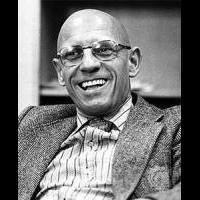
OHSP
-
Posts
369 -
Joined
-
Last visited
-
Days Won
11
Reputation Activity
-
 OHSP got a reaction from neat in Is getting a PhD worth it?
OHSP got a reaction from neat in Is getting a PhD worth it?
I second this. After my first year a bunch of the cohort seemed to be able to finance round-the-world trips and then I realized that they'd just spent 9 months living rent free courtesy of Family Cash. I make up for it by applying for fellowships while I scroll through their "beach life" instagram accounts (only kind of joking). I would also add that one thing I've seen get to people is the culture of academia--you can ❤️ research and teaching etc but that's only part of this place, and at my school the "I Love History!" folk don't really cope that well. If you're reading these boards I'd be very attentive to the advice you get from anyone attending the schools you're applying to--if someone says "I'm not sure that person really takes students" or "this school isn't strong in your area" then pay attention. It doesn't matter that you received a friendly email from a faculty member, they don't always know what's up in the department as a whole--current grad students are the most reliable source of accurate information.
-
 OHSP reacted to historygeek in Is getting a PhD worth it?
OHSP reacted to historygeek in Is getting a PhD worth it?
I am thinking of applying to a couple funded masters programs in history, in addition to (or perhaps instead of) the education program.
I know that my undergraduate school has funded MAs, and through the search feature, I’ve found a great list of other funded programs.
-
 OHSP reacted to AfricanusCrowther in Is getting a PhD worth it?
OHSP reacted to AfricanusCrowther in Is getting a PhD worth it?
I wouldn't start a PhD program without first finding a good therapist.
-
 OHSP got a reaction from Boolakanaka in Is getting a PhD worth it?
OHSP got a reaction from Boolakanaka in Is getting a PhD worth it?
I second this. After my first year a bunch of the cohort seemed to be able to finance round-the-world trips and then I realized that they'd just spent 9 months living rent free courtesy of Family Cash. I make up for it by applying for fellowships while I scroll through their "beach life" instagram accounts (only kind of joking). I would also add that one thing I've seen get to people is the culture of academia--you can ❤️ research and teaching etc but that's only part of this place, and at my school the "I Love History!" folk don't really cope that well. If you're reading these boards I'd be very attentive to the advice you get from anyone attending the schools you're applying to--if someone says "I'm not sure that person really takes students" or "this school isn't strong in your area" then pay attention. It doesn't matter that you received a friendly email from a faculty member, they don't always know what's up in the department as a whole--current grad students are the most reliable source of accurate information.
-
 OHSP reacted to placeinspace in Is getting a PhD worth it?
OHSP reacted to placeinspace in Is getting a PhD worth it?
Agreed, this is very frustrating. I met with a current PhD student whose advice to me included having my parents buy me a house at whatever uni I ended up at, since mortgage is cheaper than rent. I've never laughed so hard in my life- for those of us on our own, a PhD is no small financial decision.
-
 OHSP got a reaction from historygeek in Best places to apply?
OHSP got a reaction from historygeek in Best places to apply?
This seems like an almost random list of schools to me--can you speak to your interests beyond time period?
-
 OHSP got a reaction from TMP in JD to PhD. I have no idea how to do this.
OHSP got a reaction from TMP in JD to PhD. I have no idea how to do this.
Hi! I am in a history PhD program and also went to law school, so I have a bit of insight--though I also did my BA in history. My first piece of advice would be to talk to historians and current history grad students about your interests--sometimes people who are passionate about history find that academic history is different/not at all what they imagined it would be. What attracts you to this discipline exactly, and could you do the kind of work you want to do by going down an academic legal path? Legal articles are good but they're very, very different to history journal articles and the latter will weigh far more when you're applying to history programs. I don't want to say that articles are "better" than teaching but they speak to your ability to do academic research/to go through the process of peer-review etc, and that can be more relevant than teaching experience to the question of whether you're going to be a successful doctoral candidate. Admissions committees do care about this stuff--given that you don't have an academic history background, they'll need to see evidence that you know what it means to be an academic historian and that you've taken some steps towards working towards that career, even if that just means doing some independent research. In your position I'd strongly recommend an MA program, especially if you can find one that's funded. Aside from giving you the opportunity to create a solid writing sample, publish journal articles, and get to know your field, an MA will give you a sense of whether academic history is actually for you.
-
 OHSP got a reaction from JDtoPhDmaybe in JD to PhD. I have no idea how to do this.
OHSP got a reaction from JDtoPhDmaybe in JD to PhD. I have no idea how to do this.
Cool, the thing that you really need to do then is talk to professors, start to get your head around what history means in academic terms—this means deep diving into historiography, and perhaps start looking into MA programs.
-
 OHSP got a reaction from historygeek in JD to PhD. I have no idea how to do this.
OHSP got a reaction from historygeek in JD to PhD. I have no idea how to do this.
I don't think many academic historians would be excited to discover that Alexander the Great was "really x"--that's not what we do. History's not so much about "discovering facts" or even coming up with theories that explain the past. The paragraph you wrote is quite non-specific, so that's something to work on. What do you mean by "more specialized areas of history"? In any history department 99% of people are very specialized. Also the "...or just my take on the subject" part is worrying to me--history is largely about working very closely with primary sources, and thinking about how changing the contexts in which we read evidence might complicate prevailing historical narratives. We're not just writing down our various takes on various topics. But really you also need to have a sense of which historical narratives you take issue with and why--I'd strongly recommend talking to some historians who work in academia.
-
 OHSP got a reaction from ExponentialDecay in JD to PhD. I have no idea how to do this.
OHSP got a reaction from ExponentialDecay in JD to PhD. I have no idea how to do this.
Hi! I am in a history PhD program and also went to law school, so I have a bit of insight--though I also did my BA in history. My first piece of advice would be to talk to historians and current history grad students about your interests--sometimes people who are passionate about history find that academic history is different/not at all what they imagined it would be. What attracts you to this discipline exactly, and could you do the kind of work you want to do by going down an academic legal path? Legal articles are good but they're very, very different to history journal articles and the latter will weigh far more when you're applying to history programs. I don't want to say that articles are "better" than teaching but they speak to your ability to do academic research/to go through the process of peer-review etc, and that can be more relevant than teaching experience to the question of whether you're going to be a successful doctoral candidate. Admissions committees do care about this stuff--given that you don't have an academic history background, they'll need to see evidence that you know what it means to be an academic historian and that you've taken some steps towards working towards that career, even if that just means doing some independent research. In your position I'd strongly recommend an MA program, especially if you can find one that's funded. Aside from giving you the opportunity to create a solid writing sample, publish journal articles, and get to know your field, an MA will give you a sense of whether academic history is actually for you.
-
 OHSP got a reaction from gsc in JD to PhD. I have no idea how to do this.
OHSP got a reaction from gsc in JD to PhD. I have no idea how to do this.
Hi! I am in a history PhD program and also went to law school, so I have a bit of insight--though I also did my BA in history. My first piece of advice would be to talk to historians and current history grad students about your interests--sometimes people who are passionate about history find that academic history is different/not at all what they imagined it would be. What attracts you to this discipline exactly, and could you do the kind of work you want to do by going down an academic legal path? Legal articles are good but they're very, very different to history journal articles and the latter will weigh far more when you're applying to history programs. I don't want to say that articles are "better" than teaching but they speak to your ability to do academic research/to go through the process of peer-review etc, and that can be more relevant than teaching experience to the question of whether you're going to be a successful doctoral candidate. Admissions committees do care about this stuff--given that you don't have an academic history background, they'll need to see evidence that you know what it means to be an academic historian and that you've taken some steps towards working towards that career, even if that just means doing some independent research. In your position I'd strongly recommend an MA program, especially if you can find one that's funded. Aside from giving you the opportunity to create a solid writing sample, publish journal articles, and get to know your field, an MA will give you a sense of whether academic history is actually for you.
-
 OHSP got a reaction from historygeek in JD to PhD. I have no idea how to do this.
OHSP got a reaction from historygeek in JD to PhD. I have no idea how to do this.
Hi! I am in a history PhD program and also went to law school, so I have a bit of insight--though I also did my BA in history. My first piece of advice would be to talk to historians and current history grad students about your interests--sometimes people who are passionate about history find that academic history is different/not at all what they imagined it would be. What attracts you to this discipline exactly, and could you do the kind of work you want to do by going down an academic legal path? Legal articles are good but they're very, very different to history journal articles and the latter will weigh far more when you're applying to history programs. I don't want to say that articles are "better" than teaching but they speak to your ability to do academic research/to go through the process of peer-review etc, and that can be more relevant than teaching experience to the question of whether you're going to be a successful doctoral candidate. Admissions committees do care about this stuff--given that you don't have an academic history background, they'll need to see evidence that you know what it means to be an academic historian and that you've taken some steps towards working towards that career, even if that just means doing some independent research. In your position I'd strongly recommend an MA program, especially if you can find one that's funded. Aside from giving you the opportunity to create a solid writing sample, publish journal articles, and get to know your field, an MA will give you a sense of whether academic history is actually for you.
-
 OHSP got a reaction from urbanhistorynerd in Applications 2019
OHSP got a reaction from urbanhistorynerd in Applications 2019
This is a good start but I'm not sure I come away with any sense of what you're really, really interested in, in terms of questions. Don't worry about claiming to have any answers yet, instead show readers that you can formulate a historical question.
-
 OHSP got a reaction from historygeek in Applications 2019
OHSP got a reaction from historygeek in Applications 2019
I understand wanting to run things by people, but (speaking as someone whose partner is a practicing artist and a senior lecturer in art history, and as someone who has worked with a lot of art historians outside of my own PhD) art history and history have very little in common as disciplinary fields and I don't know how useful anyone here can really be. Your work sounds interesting and it sounds like you have a sense of who you might like to work with, so I would start emailing those people and getting a sense of whether you might be a good fit for their programs.
-
 OHSP reacted to WRS in Applications 2019
OHSP reacted to WRS in Applications 2019
Ok, thank you, I'll do that. I was unsure if I should post in here due to the difference in discipline, but I thought I'd give it a shot. Hopefully the art history forum becomes more active.
-
 OHSP got a reaction from psstein in Applications 2019
OHSP got a reaction from psstein in Applications 2019
I understand wanting to run things by people, but (speaking as someone whose partner is a practicing artist and a senior lecturer in art history, and as someone who has worked with a lot of art historians outside of my own PhD) art history and history have very little in common as disciplinary fields and I don't know how useful anyone here can really be. Your work sounds interesting and it sounds like you have a sense of who you might like to work with, so I would start emailing those people and getting a sense of whether you might be a good fit for their programs.
-
 OHSP got a reaction from VAZ in Applications 2019
OHSP got a reaction from VAZ in Applications 2019
I understand wanting to run things by people, but (speaking as someone whose partner is a practicing artist and a senior lecturer in art history, and as someone who has worked with a lot of art historians outside of my own PhD) art history and history have very little in common as disciplinary fields and I don't know how useful anyone here can really be. Your work sounds interesting and it sounds like you have a sense of who you might like to work with, so I would start emailing those people and getting a sense of whether you might be a good fit for their programs.
-
 OHSP reacted to AfricanusCrowther in Query Regarding South Asian History Graduate Programs
OHSP reacted to AfricanusCrowther in Query Regarding South Asian History Graduate Programs
I don't think you'll find the most helpful answers to this question on GradCafe. I would try the following:
1. Ask the South Asian history professors whom you know. Presumably they're already aware that you're applying because you have already asked them for advice. A quick "Hi, just wanted to double check my list, what schools would you say were the top in the field for my specific research interests? Oh, great, that's what I thought," would help. Even if you don't want to tell them your plans yet (although you should if you're applying this year), you could say you're just curious.
Ideally you would be having conversations that were much more in depth at this point.
2. This is the blunt force method: go through the top 100 research universities and see where assistant professors and young associate professors in South Asian history got their degrees. Remember that placement is just as much about the advisor; if you're scratching your head as to why a school appears to be punching above its weight, figure out whether that school had a star academic whose name could get students through the door (eg, Ira Berlin at Maryland), or if they have a longstanding institutional investment in a particular sub-field that is widely recognized (eg, MSU for my field).
3. Figure out where the scholars who publish groundbreaking scholarship teach and got their degrees.
-
 OHSP reacted to dr. t in Query Regarding South Asian History Graduate Programs
OHSP reacted to dr. t in Query Regarding South Asian History Graduate Programs
I'm not sure why your plain dumb luck is a model others should seek to emulate.
It's not "if you have to ask, go away." It's "show that you've done the bare minimum level of work to be part of the conversation." That's not a lot to ask, and it's considered polite when asking strangers for help.
This is not a particularly helpful list.
-
 OHSP reacted to L13 in Query Regarding South Asian History Graduate Programs
OHSP reacted to L13 in Query Regarding South Asian History Graduate Programs
I applied out of undergrad and knew absolutely nothing about the relative strength of/stand-out names at different departments when I started the process, yet I ended up with an amazing advisor at a great department.
Your level of professionalization says little about your academic preparedness or your odds of acceptance and saying things like "if you have to ask, go away" is not helpful. Obviously applicants need to do their own research, but pointing them in the right direction, or even just a direction, when they have zero idea what to look for is not going to jeopardize the fairness of the application process or cause them to be accepted on false pretenses and flunk out or whatever.
OP, I'm not in your field, but I've gotten the impression Columbia, Harvard, Princeton, Yale, Stanford and Berkeley dominate job placement in the US, with Columbia being the most successful, though your specific subfield and interests should narrow that down considerably.
-
 OHSP reacted to astroid88 in Query Regarding South Asian History Graduate Programs
OHSP reacted to astroid88 in Query Regarding South Asian History Graduate Programs
One has to start somewhere. Please keep these types of comments to yourself.
Also, knowing best researchers/best programs and being ready for a PhD program are not the same thing. You seem to be equating the two.
-
 OHSP got a reaction from AfricanusCrowther in Applications 2019
OHSP got a reaction from AfricanusCrowther in Applications 2019
Try for a research-focused hook, as you'll do when you write applications for grant money, etc.
-
 OHSP got a reaction from historygeek in Applications 2019
OHSP got a reaction from historygeek in Applications 2019
Also @historygeek I think I mentioned a while ago that Nolan has retired, so I'd take her name out of the NYU one (trust me, she is not taking on new students, she has cleared out her office, I have some of her old books, etc). Gordon is not taking new students and is about to retire at any minute. Sugrue doesn't make that much sense to me, but Michele Mitchell does. It might be worth getting a better sense of the faculty. First paragraph-wise try to avoid very broad statements like, "I want to reframe immigrant narratives from a cultural perspective while juxtaposing it within a broader social context." That's very non-specific. See if you can use the first paragraph to show the adcom that you have a burning (very specific, interesting) question (because that shows them that you know how to formulate a question).
-
 OHSP reacted to dr. t in Applications 2019
OHSP reacted to dr. t in Applications 2019
Glad someone else took this job this year.
Rutgers is moving up a lot, I think. Like NYU, they're chucking some major money around, and I think we'll see the result in the job market shortly if we haven't already.
-
 OHSP got a reaction from ashiepoo72 in Applications 2019
OHSP got a reaction from ashiepoo72 in Applications 2019
I should have combined my responses to your questions but oh well... my main advisor is an assistant prof, she's great and her approach to scholarship is very much like mine/I'm super, super glad that she's around. She's also extremely busy and going up for tenure soon, which requires me to be pretty understanding when she can't meet/I don't always have the same access to her as friends have to their tenured full professor advisors. BUT, while all of that was initially kind of scary it's forced me to develop a close relationship with other professors early on, and to fill my committee with people whose work I really respect and who, because they're tenured, have more time and experience. Ie I don't think it's a problem to have an assistant prof as your main advisor so long as you can also imagine working with faculty who are tenured--and being willing to work with assistant profs can be necessary/important in emerging fields.






